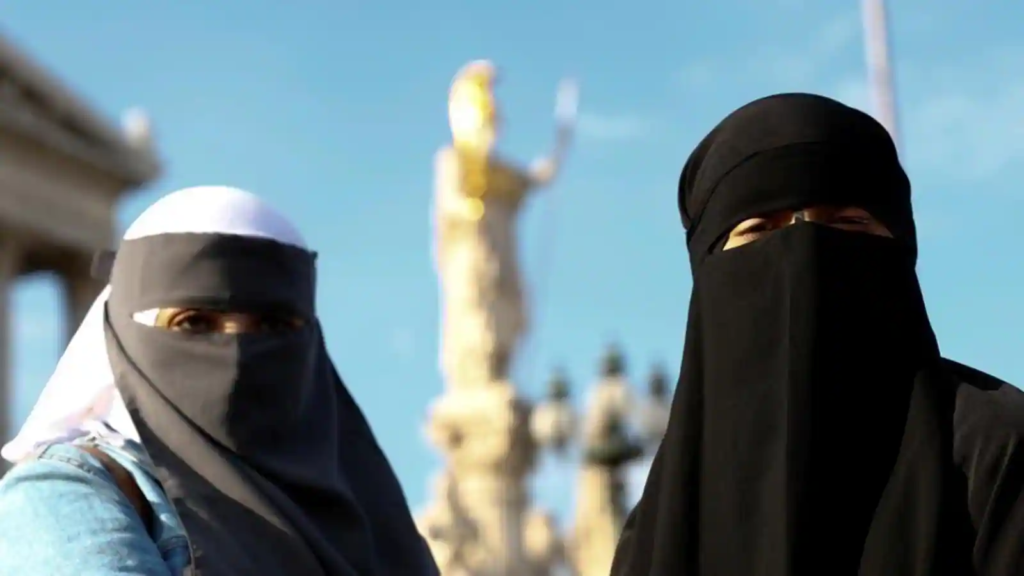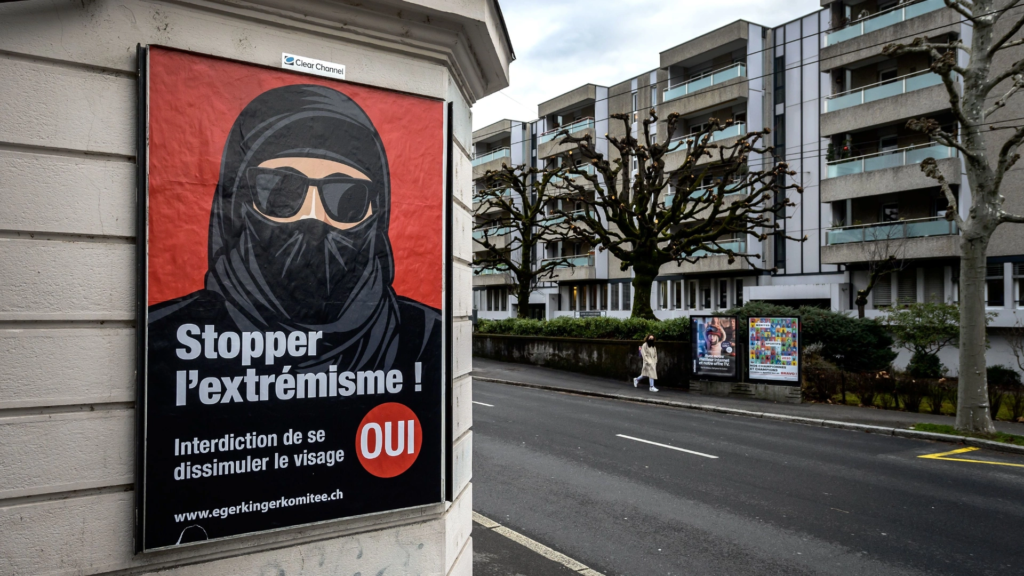On January 1, Switzerland’s controversial burqa ban officially took effect, marking a significant moment in the nation’s legal and cultural history.
The ban, which prohibits the wearing of face-covering attire such as burqas and niqabs in public, has sparked debates around freedom of expression, religious liberty, and national identity.
The Journey to the Burqa Ban
The origins of Switzerland’s burqa ban can be traced back to a 2021 referendum, in which 51.2% of voters approved the prohibition of face coverings in public spaces.
Proposed by the right-wing Swiss People’s Party (SVP), the initiative was part of a broader campaign against what they termed “extremism.” While the referendum did not explicitly mention Islam, its focus on attire associated with Muslim women left little doubt about its intent.
The University of Lucerne’s research revealed that the law targets a small minority, as approximately 30 women in Switzerland wear the niqab, while burqas are virtually non-existent.
Read : World’s Steepest Cable Car Connecting Stechelberg to Mürren Opens in Switzerland
Nonetheless, the ban reflects ongoing tensions around multiculturalism and national identity in Switzerland, where Muslims constitute about 5% of the population, primarily originating from Turkey, Bosnia, and Kosovo.
Read : Tajikistan is Set to Ban Hijab and Other Islamic Clothes
In September 2023, the Lower House of Parliament solidified the referendum’s outcome into federal law, setting a fine of up to 1,000 francs (approximately $1,100) for violations. The law includes exceptions for health-related face coverings, such as medical masks, and for certain cultural, religious, or artistic contexts.
Controversy and Criticism
The ban has drawn significant criticism from human rights organizations and Muslim groups, both domestically and internationally.
The Central Council of Muslims in Switzerland described the decision as a “dark day” for Muslims, arguing that it perpetuates inequality and exclusion. Amnesty International echoed these concerns, labeling the ban a violation of women’s rights, particularly their freedoms of expression and religion.

Supporters of the ban, including SVP lawmakers, argue that it addresses broader concerns about extremism and the integration of immigrant communities. Walter Wobmann, a leading advocate, described face coverings as “a symbol for this extreme, political Islam which has no place in Switzerland.”
This measure is not an isolated case in Europe. Countries such as France, Denmark, Austria, and Belgium have implemented similar bans, often citing security concerns or secular principles.
France, for instance, banned face-covering veils in public spaces in 2011, following earlier prohibitions on conspicuous religious symbols in schools. These bans, however, have frequently been criticized for disproportionately targeting Muslim women and for fostering Islamophobia.
A Broader European Context
Switzerland’s burqa ban is part of a wider trend in Europe, where several nations have enacted similar legislation. Advocates of these measures often frame them as necessary to uphold secularism or public safety, yet critics argue they contribute to the marginalization of Muslim communities.
The debate around such bans gained momentum in the aftermath of the 9/11 terror attacks, which heightened suspicions of Muslim practices and attire. Reports suggest that nationalist and far-right political parties have been at the forefront of promoting such policies, often leveraging fears of extremism for political gain.

Countries like Austria, Belgium, and the Netherlands have instituted full or partial bans on face coverings, while Germany remains divided, with some states implementing restrictions and others advocating integration over prohibition.
In contrast, nations such as Croatia, Greece, and Portugal have avoided public debates on the issue, reflecting varying attitudes toward multiculturalism across Europe.
Critics argue that these bans exacerbate stereotypes and hinder integration by alienating Muslim communities. A March 2022 report by the Open Society Justice Initiative highlighted how such measures reflect broader societal biases, portraying Muslims as a perceived “enemy within.”
Switzerland’s burqa ban symbolizes a contentious intersection of security, secularism, and individual freedoms. While proponents view it as a step toward preserving national values and combating extremism, detractors warn of its divisive implications for Muslim communities and women’s rights.
As the ban takes effect, it serves as a reminder of the complex challenges democracies face in balancing cultural diversity with national identity. The true impact of the law, however, will unfold in the coming years, as Switzerland navigates its path in an increasingly globalized and multicultural world.

